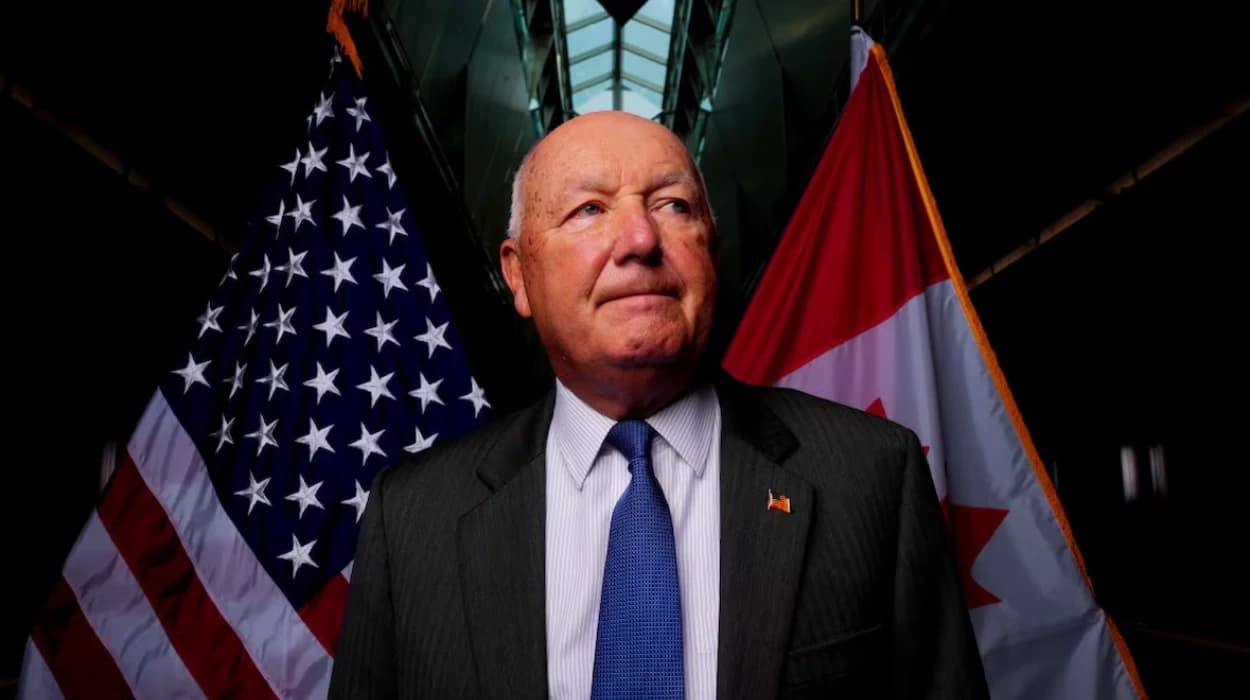Summary
- Canada to start public consultations on the North American trade pact.
- Follow U.S. review initiated by Trump administration.
- Mexico also begins a consultation process ahead of 2026 review.
The government is anticipated to publish an official notice soon asking for public input on the Canada-U.S.-Mexico Agreement (CUSMA), according to the office of Canada-U.S. Trade Minister Dominic LeBlanc.
According to a statement released by LeBlanc's office, "Canada will be engaging with Canadian industry leaders, provinces and territories and Indigenous partners" in advance of the assessment.
The United States declared on Tuesday that it will begin formal consultations to assess the agreement's performance over the last five years. In addition to signaling to the Canadian government that official negotiations to review CUSMA may commence in early 2026, the Americans' action sets the clock for a months-long process.
It is now "obvious at least at this point in time," according to U.S. Ambassador to Canada Pete Hoekstra, who stated that evening that the United States is proceeding with consultations.
"The Americans were hopeful that we could negotiate a bigger deal,"
Hoekstra said during a keynote address at a Canadian International Council event.
"Whether it's on trade, whether it's energy, whether it's automotive, whether it's nuclear defence and all those types of things, we were hoping that we would not just renegotiate CUSMA but that we could take it into being something much bigger,"
he said.
"It's obvious, at least at this point in time, that that's not going to happen."
Hokestra said these consultations open the door for Americans to start "funnelling comments into the federal government" to figure out what a revised CUSMA will look like.
When questioned about Hoekstra's remark regarding a larger agreement, Finance Minister François-Philippe Champagne stated that when the United States abandoned the nation with its tariff agenda, Canada offered an economic and security partnership.
The tariffs imposed by US President Donald Trump, which include a 50% charge on imports of steel and aluminum, are still in effect.
"We've been engaging very actively with the U.S. administration since the beginning,"
Champagne said.
"Canada's always been, I would say, proactive, forthcoming, positive in how we engage."
After initially stating that he was looking for a new economic and security pact with the United States, Prime Minister Mark Carney announced this month that the government is now negotiating a number of smaller agreements to support sectors severely impacted by Trump's tariffs. Additionally, Carney stated that officials are getting ready for the CUSMA assessment.
Carney said he spoke to Trump over the weekend and that he speaks to him on a regular basis during the first question time of the autumn parliamentary sitting. Carney claimed they text each other and referred to the president as a "modern man" in French. While noting challenges and disappointments, he also characterized the relationship between the United States and Canada as positive.
On Wednesday, the Trump administration also published a federal notice asking for comments on the possibility of adding more items made of steel and aluminum to the list of products subject to a 50% duty.
The terms reached during Trump's first term require that the United States, Canada, and Mexico have a joint CUSMA review after six years.
In a video released online on Wednesday, Mexico's Economy Secretary Marcelo Ebrard stated that the nation is also beginning the process of public consultation.
In an effort to strengthen ties between the two nations, the prime minister and a number of other ministers are traveling to Mexico on Thursday. Most people saw the trip as an attempt to rally support before the CUSMA review.
How will the upcoming trade negotiations take place between the U.S. and Canada affect NAFTA?
The trade negotiations could reinforce and sustain the existing bare-bones trade regime under USMCA, or amend certain provisions due to the changing economic and political environment.
Canada will probably seek to maintain duty-free access to the U.S. and Mexican markets, in addition to industry protections for agriculture, manufacturing, and natural resources.
The earlier position of the U.S. administration, including threats of tariffs and discrediting or highlighting negative aspects of the terms of USMCA may create some pressure a few months after the negotiations begin for changes in certain provisions that benefit Canadian trade.
A failure to reach agreements, or tension that remains unresolved, may result in the U.S. re-employing its tariffs under World Trade Organization (WTO) principles.

